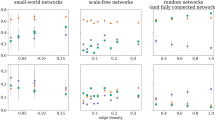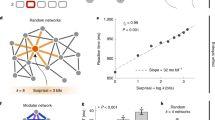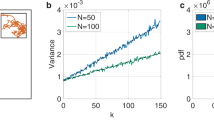Abstract
THE theory of cohesion put forward by Dr. Herbert Chatley in NATURE óf August 18 is logically based on those of other investigators, and, consequently, does not involve any new element. In all these theories cohesion is made to depend on centrally directed forces which follow either the inverse square law of gravitation or electrical attraction, or that of some other inverse power higher than the second. Dr. Chatley says: “It is difficult to conceive of one force having all these properties, but perfectly simple to imagine an attraction and repulsion combined that will do so, provided that the attraction decreases more slowly with separation than the repulsion.” He takes the ground that the force of cohesion as stated by him is related to those following the inverse square law, and that the question of the relation between them is of great importance.
This is a preview of subscription content, access via your institution
Access options
Subscribe to this journal
Receive 51 print issues and online access
$199.00 per year
only $3.90 per issue
Buy this article
- Purchase on Springer Link
- Instant access to full article PDF
Prices may be subject to local taxes which are calculated during checkout
Similar content being viewed by others
Author information
Authors and Affiliations
Rights and permissions
About this article
Cite this article
TAYLOR, W. Cohesion. Nature 109, 10–11 (1922). https://doi.org/10.1038/109010a0
Issue Date:
DOI: https://doi.org/10.1038/109010a0
Comments
By submitting a comment you agree to abide by our Terms and Community Guidelines. If you find something abusive or that does not comply with our terms or guidelines please flag it as inappropriate.



